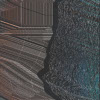 The span of this Irish composer's recorded works encompasses 30 odd years, having released something on the order of 25 albums (including an LP, Rapid Eye Movements, on Steven Stapleton's United Dairies in 1981), in addition to creating scores of commissioned works for theater (Doyle is a co-founder, along with Olwen Fouere, of the Operating Theatre group) and others. The Ninth Set is the third and final volume in his major work Passades, which Doyle worked on between the years 2002 and 2007, composed as an accompaniment to a wordless Operating Theatre production with the music performing the role of the text.
The span of this Irish composer's recorded works encompasses 30 odd years, having released something on the order of 25 albums (including an LP, Rapid Eye Movements, on Steven Stapleton's United Dairies in 1981), in addition to creating scores of commissioned works for theater (Doyle is a co-founder, along with Olwen Fouere, of the Operating Theatre group) and others. The Ninth Set is the third and final volume in his major work Passades, which Doyle worked on between the years 2002 and 2007, composed as an accompaniment to a wordless Operating Theatre production with the music performing the role of the text.
I've had this CD for some while now, and during that time I have been trying to settle satisfactorily on an appropriate approach to it. Undeniably, there are many elements of the exotic and alien orbiting around the five parts of this release, ranging from the deeply unsettling to the haunting and to the reflective even, the whole shot through with a deep sense of melancholy and longing. In addition, a vein of sadness bubbles just below the surface which is only just being held in check, and which also ultimately threatens to overwhelm the dam at any moment and explode in torrents.
The one overwhelming emotion I take from this is immensely deep loss. Concomitant to that the one thing that kept running through my mind while listening was the Greek myth of Orpheus and Eurydice, and this is indeed a species of that myth—the lovers being unwillingly torn apart through death: one to remain in the world of sunlight and the other being confined to the underworld; and consequent to that the heroes' quest to rescue his love from the clutches of the kingdom of the dead by undergoing the arduous subterranean journey necessary to effect his ambition. Setting the tone, the introductory first part, with its long ringing sections of strings and choir-like voices building and stacking, stutteringly broken up here and there, and on occasion interspersed with the odd screeching of an exotic avian perhaps, establishes the main mood of the piece—that of longing and despair, and frustration even. Following on from this, the second part delves headlong into the subterranean regions, with all its attendant terrors and filled with the sounds of strange creatures and the ejaculations of lost souls.
Hades is indeed an unwholesome and unwelcoming place. Doyle paints a picture as descriptive, and as disturbing, as any painting by Hieronymous Bosch. Having intimated that though, let it be said that Doyle isn't as crass as to employ clichés in building up these sound-pictures. Instead, it is amply demonstrated through the use of animalistic sounds, of blasts of freezing icy winds and howls, along with a distinct air of hollowness, which allied to disembodied, placeless noises and scratchings, and mechanical creakings, is suggestive of deep, cold, and darkly suffocating subterranean spaces dripping with mold and ichor. In addition, these spaces Doyle is picturing for us are vastly cavernous, and harrowingly impersonal; warmth is noticeable by its absence here, and even the ghosts whose destiny it is to walk here cannot escape the cold’s bone-numbing clutches. Despair is ever the companion of those who call this their home.
There is a denouement of sorts, which although superficially calm and restful is also pregnant with a subtext of sorrow gestating within it, as if to say that no matter how much light there is in our lives darkness will inevitably follow and tinge our lives. In even this it is reflecting the Greek myth alluded to above—after leading his love back to the world of light, warmth, and vibrant nature, Orpheus is still destined to part with her for six months of the year, at the time when all is dead or asleep. This is what we are left with in the aftermath of The Ninth Set, that despite the hardships endured and the struggles overcome, that is not the end of it. This is 67 minutes of unnervingly dark and oppressive, yet strangely moving music, capturing within it the essence perhaps of life, love, and its consequences.
samples:
Read More

